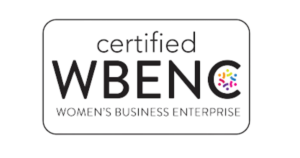Labor Day is over, pools have closed, and county fairs have come to an end. Now it’s time to shift gears and focus on getting kids back to school, and it’s also time to get in gear when it comes to re-engaging back at work. Even if you don’t have kids or have adult kids no longer in school, it doesn’t matter how old we get or how many years it has been since we graduated, we all still live our lives according to the school calendar.
Over the summer, everyone seems to be on a physical or mental vacation…or both. They are not called the lazy days of summer for nothing. The warm weather is calling you outside and that’s the time we head to the beach, read trashy novels, travel to visit with family and friends, and try to do the least amount of work as possible. It’s also the time that many working parents are trying to juggle multiple additional responsibilities…camp counselor, Uber driver, summer school tutor, and lifeguard. It can be very challenging to make work a top priority and many see productivity, motivation, and engagement drop during the summer months.
This is true whether you are currently employed or are in the hunt for a new, or better, position. However, everything changes once the kids bust out the new backpacks, sharpen those number two pencils, and establish a new routine for the start of a new school year. Once the temperature starts to drop, workloads ramp up, to-do lists get longer, and hiring decisions escalate. Kids or no kids, everyone has a renewed sense of excitement at this time of year and are ready to re-activate their brains, buckle down, and get back to work. Just like kids have a new school supply list, classroom, and curriculum, so should professional adults.
Follow the ON Point Action Plan so you can go back to work with a bang!
7 Ways to Get Back to Work After Summer Vacation
- Clean Up – start fresh by cleaning up your desk & workspace; no one is productive or efficient when they need to wade through floaties & bottles of sunscreen
- Find the Focus – priorities change & it’s easy to daydream over the summer; establish a new routine with mini daily goals that help set you up for success
- Reconnect – competing vacation schedules make it hard to connect; reach out & catch up with friends & colleagues
- Go To School – start of school is also about committing to personal & professional growth & development; find a conference or get a new certification
- Boost Your Foundation – resumes & LinkedIn profiles get neglected during the summer; revisit them & make the necessary updates, changes & revisions
- Get Engaged – summer can mean “out of sight, out of mind;” increase your visibility within your team, organization, industry and/or community
- Finish Strong – the end of the year will be here in a nano-second; revisit your professional goals, make a strategic plan & snap into action


